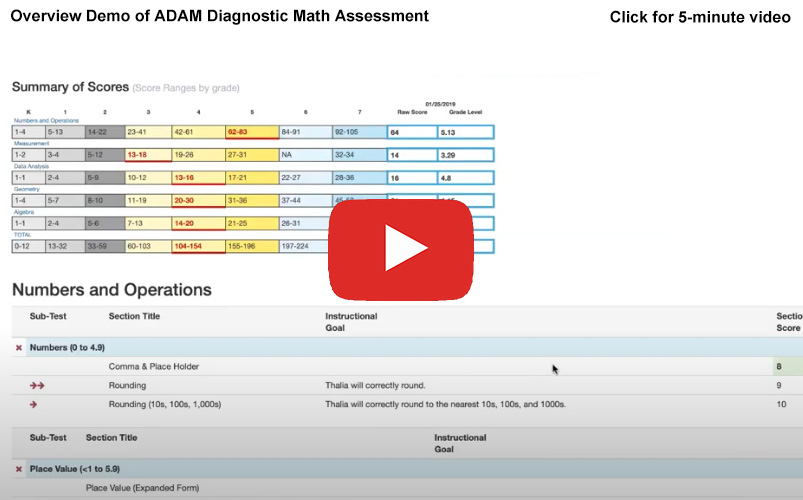What is Kindergarten Math Assessment?
Kindergarten is often the first contact children have with a formal education system, and it’s important for teachers to quickly discover where children stand in their emergent academic career. Children at this age often show a wide variety of academic progress thus far, and many schools use screening assessments to identify high-risk students or the first signs of a learning disability. Like English Language Arts (ELA), math is a core skill which teachers begin to assess at an early age.
Kindergarten math assessment serves the purpose of helping to establish a baseline for future assessment, monitoring student progress and understanding their mathematical development. Regular “checkups” are done to make sure that students are grasping fundamental math concepts and are on track in their learning. Assessing student progress is crucial in identifying areas for improvement and providing targeted support. Keeping the assessment process simple for both teachers and students is essential for effective and efficient evaluation. By utilizing user-friendly assessment tools and practices, teachers can gain valuable insights into student learning while minimizing disruptions to the learning environment. This ensures that assessment is a seamless and beneficial part of the kindergarten math curriculum.
Benefits of Using Online Assessments for Kindergarten Math Assessment
One of the key benefits of an online assessment is that kids are naturally engaged by software. Unlike traditional pen-and-paper, online assessments leverage technology to create dynamic and visually stimulating environments, capturing the attention and interest of young learners. According to the National Association for the Education of Young Children (NAEYC) “With guidance, these various technology tools can be harnessed for learning and development; without guidance, usage can be inappropriate and/or interfere with learning and development”. The use of multimedia elements, interactive features, and gamified components not only makes the assessment process more enjoyable for children but also leverages something children already enjoy: digital screens.

Diagnostic Assessments
There are several types of diagnostic assessments available for both math and reading. Math diagnostic assessments include pretests, formative assessments, and standardized tests. The purpose of these assessments is to identify students’ current level of understanding and skills in math, and to inform teachers about areas where students may need additional instruction. By using these assessments, teachers can personalize instruction and empower students to take ownership of their learning journey in math.
Let’s Go Learn is an adaptive, online assessment and instruction system designed to provide personalized learning experiences for students of all ages. Using the latest technology and educational research, Let’s Go Learn offers diagnostic assessments in reading and math, as well as personalized learning paths and instructional resources to help students improve their skills. By catering to each student’s unique learning needs, Let’s Go Learn aims to support educators in their efforts to differentiate their classrooms and help students succeed. With a focus on data-driven instruction and individualized learning, Let’s Go Learn is a valuable tool for educators looking to save time, differentiate instruction and maximize student growth.
Comprehensive Mathematics Solutions
ADAM is a comprehensive mathematics assessment system from Let’s Go Learn that covers the entire K-7 mathematics curriculum. It is aligned with the National Council of Teachers of Mathematics (NCTM)’s five content strands, ensuring a thorough coverage of mathematics concepts. ADAM uses adaptive logic, which means that the difficulty of the questions adjusts to the student’s skill level, providing a personalized assessment experience. The system also offers a thorough assessment of students’ strengths and weaknesses, allowing educators to tailor instruction to meet individual needs. The system can isolate mastery levels across 44 sub-tests, providing detailed insights into students’ mathematical abilities.

Features of Let’s Go Learn for Kindergarten Math Assessment
Let’s Go Learn offers a comprehensive assessment for kindergarten math that provides valuable insights into a student’s foundational math skills. The features of Let’s Go Learn for kindergarten math assessment are designed to accurately measure a child’s understanding of key math concepts, identify areas of strength and weakness, and provide educators with data-driven recommendations for personalized instruction. With engaging and adaptive content, this assessment tool makes it easy for teachers to track student progress, intervene when necessary, and support each child’s development in early math skills. The features of Let’s Go Learn for kindergarten math assessment ensure that educators have the tools they need to create a supportive and effective learning environment for young math learners.



Leave A Comment